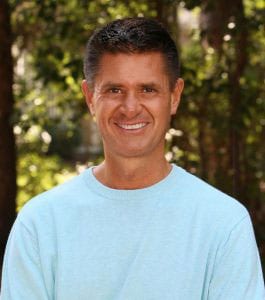Living with dystonia is sometimes reminiscent of the plight of Sisyphus, a king from Greek mythology. Sisyphus was king of Ephyra who was punished for chronic deceitfulness and condemned to an eternity at hard labor. His punishment was to roll a massive boulder up a hill until he reached the top. However, right before he reached the top the boulder rolled all the way down and he had to repeat the task over and over.
If you have dystonia, this might sound like what you experience on a daily basis.
It can be utterly frustrating and exhausting living with chronic pain, shopping for a good doctor, people not understanding, continually fighting to get better and not getting over the hump, trying to find new ways to relieve symptoms, or just getting through the day with as little discomfort as possible.
Although it may often feel like we are rolling a boulder up a hill only to have it roll back down and crush all our efforts, in the face of all your challenges, is it not an accomplishment to even get the ball rolling up the hill? I think so. Dystonia challenges us in ways that we probably never imagined possible. These challenges make each accomplishment more rewarding.
With this perspective we realize that dystonia does not diminish our value as a person. In many ways it enhances our value.
Unlike Sisyphus, there is hope for us. We are not alone in our battle and while we have no cure at this point, we do have treatments that can help us manage our symptoms so we can live a productive life. Researchers are working everyday to improve on them, as well as find new treatments.
Granted, for many of us life is different than we once knew, but that does not mean it has to be any less enjoyable and fulfilling.
If you have ever seen the movie, The Shawshank Redemption (1994), picture the moment when ‘Andy Dufresne’ (played by Tim Robbins) escaped from prison after crawling through a 500 yard sewage pipe. He came out clean on the other end when he fell into the stream with the rain pouring down on him. He tore off his shirt and raised his arms to the sky as a sign of freedom and triumph after being wrongfully incarcerated for nearly 20 years.
Just like Andy Dufresne, we all have days where we feel like we are trapped in a prison cell and sewer pipe. There are also days when we feel as he did when he reached the other side and was free. Savor these moments. Remember these feelings. Write about them in your journal. Talk about them. Celebrate them. Figure out what you did or did not do that made you feel better. Do whatever you can to leave an imprint on your mind about how you felt so you never forget.
We have the ability to go back to that place in our minds anytime we choose to get relief and peace of mind.
When you find yourself in the “sewer”, remember that hope never dies. You can always get out. You do not have to live in the mental and emotional world of fear and loneliness that is like the prison cell and sewage pipe. When you get knocked down, you can get back up. If you have done it before, you can do it again. It does not matter how many times you get knocked down as long as you keep getting up and keep going. Strength is not defined by how powerful we are but how persistent we are.
Just like Andy Dufresne said in the movie, “There are places in this world that aren’t made out of stone. There’s something inside that they can’t get to, that they can’t touch; that’s yours; hope. Hope is a good thing, maybe the best of things, and no good thing ever dies.” Remember this as you live your life.
Just because today may be a challenging day, there is always tomorrow to begin anew.



